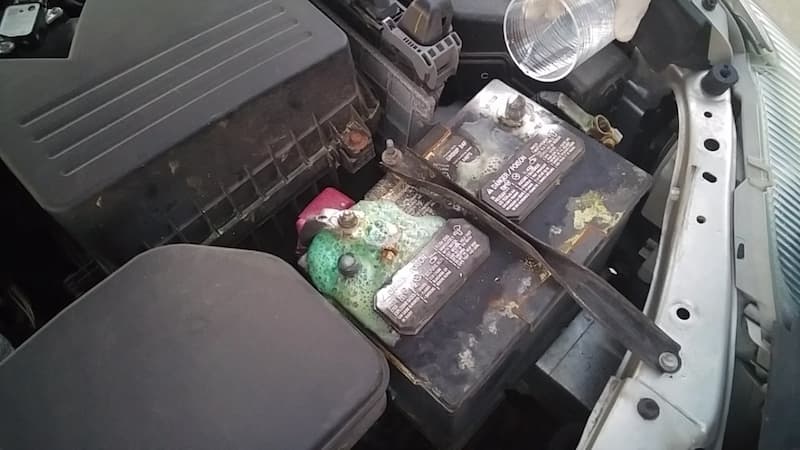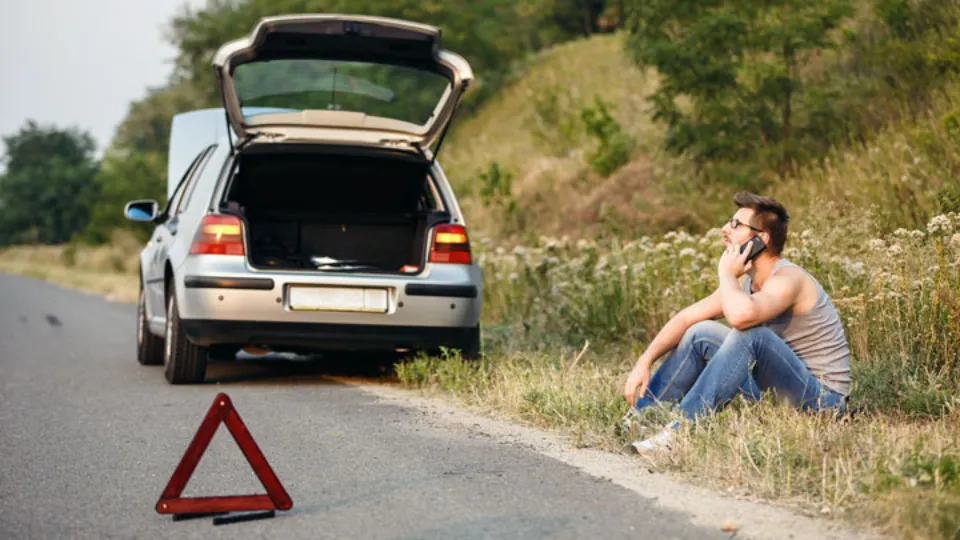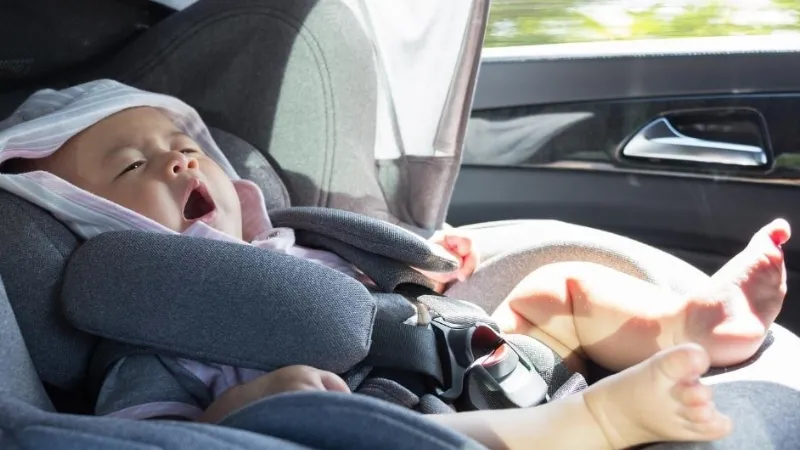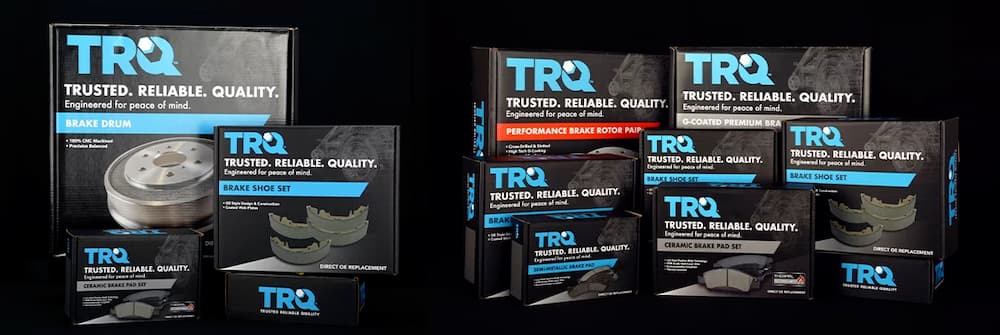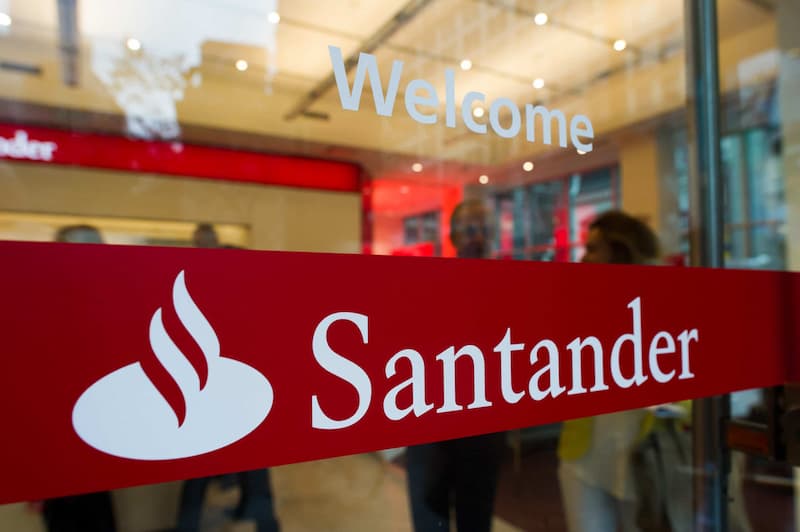How many car payments can you miss before repossession? The lender really makes a difference. Generally, two or three consecutive payments can lead to potential repossession, beyond damaging your credit score tremendously. After one late payment, some lenders will even think about taking back the property.
The good news is that before things spiral out of control, you typically have options for handling a missed payment. Be honest with your lender about your situation and try to come up with a solution.
Some ways to help lessen the burden of your car loan include:
- Refinancing the loan
- Asking for an extension or alternate payment plan
- Adding additional months to the loan
For more information, continue reading.
Table of Contents
How Many Car Payments Can You Miss Before Repossession?
Get all the details, including your lender’s policies on repossession, before you apply for a car loan.
After One Missed Payment, Will My Car Be Repossessed?
After you have missed one payment, lenders typically won’t seize your car. Others will waive any late penalties if it’s your first infraction, while some will charge you a late fee and additional interest. On the other hand, your particular vehicle might have technology that enables your lender to remotely disable it after just one late payment.
Do Three Missed Payments Mean My Car Will Be Repossessed?
Every creditor has a different policy, but the majority will think about taking back your car after you’ve missed two or three payments (or roughly 60 to 90 days’ worth). Even so, some lenders will quickly seize your car if they believe you have a poor credit rating or a spotty payment history, as this puts you at a higher risk of defaulting.
Will My Car Be Repossessed After Four Missed Payments?
Your lender will likely repossess your car if you skip two to four payments and don’t work out another payment plan. They’ll also report the incident to Equifax and/or TransUnion, which could harm your credit. Just keep in mind that if you avoid the lender’s repo personnel or attempts to contact you, the situation will only become more costly and problematic.
Types Of Car Repossession
The laws governing the repossession of vehicles in Canada vary by province and territory. However, if you fail to pay your car loan on time, there are two main kinds of repossessions that can occur:
Involuntary Repossession
This occurs when you consistently skip car payments but are unwilling to work with your lender to find a resolution. This is the most expensive method of going through a car repossession because, in addition to your initial debt, you will typically be charged for costs like towing, bailiff fees, and refurbishment. In some states, a lender may also bring legal action against you for the outstanding loan balance from the sale of the vehicle.
The lender then informs Equifax and TransUnion, which can lower your credit score to “R8,” about your defaulted auto loan. Your credit rating will drop to “R9” (for delinquent, sold, or transferred debts) if you don’t work out a payment plan with the lender soon.
Voluntary Repossession
It’s safer to return your car and pay off the balance owing voluntarily to avoid the added expenses and damage to your credit that result from an unauthorized repossession. You could save a lot of money if you return the car and come up with a new payment schedule, and your credit rating would remain at “R8” until the balance is paid (at which point it should gradually improve).
What Takes Place During A Car Repossession?
Depending on your province or territory, you might be subject to a variety of different vehicle repossession laws. For example, Ontario has the “seize and sue” law, which allows a lender to sue you over your deficiency balance after an auction. They have the option of doing this or taking the vehicle back in British Columbia and Alberta.
When voluntary repossession occurs, you have two options: tow the vehicle yourself for a fee or bring it to your lender (which is the less expensive option). If not, the lender may send a bailiff and a tow truck to your house whenever it’s convenient in order to recover the vehicle.
Can A Car Repossession Affect Your Credit Scores?
A car repossession can negatively affect your scores, in fact, there are several because several things can happen to your credit when you miss your car payments, including:
- If a payment is more than 30 days overdue, your lender will report it as a late payment to the credit bureau(s), which could hurt your credit.
- Lenders are allowed to declare an account in default within 30 days of a missed payment. In that case, your lender reserves the right to seize your car, which will leave another blemish on your credit history and could lower your rating to an R8.
- In the event that you are required to make a deficiency payment but are unable to do so, your lender may sell the debt to a collection agency, which could result in a downgrade to an R9. Your credit score could consequently decline as a result of this.
- Your credit may be further harmed if the collection agency sues you and prevails.
How Does An Auto Loan work?
It’s a good idea to be knowledgeable about the entire auto loan process in order to better understand how to prevent repossession. Before signing any loan documents, you should be completely aware of what you are getting into. Before making a significant financial choice like purchasing a car, many people don’t give it much thought. While others might experience financial difficulties that couldn’t possibly be predicted.
When you don’t have the cash up front to buy a car, you can obtain an auto loan and pay for it over time with recurring monthly installments. Few people have enough savings to pay for a car all at once. After putting down a down payment and signing a loan agreement to repay the loan balance plus interest through regular monthly payments, people who have a car loan are able to drive away in the car they want to buy.
You enter into a legally binding contract with the financial institution you are borrowing the money from to buy the car. This contract specifies a predetermined interest rate, monthly payment amount, and term length of between 24 and 84 months. The loan agreement may be broken if these monthly payments are neglected.

Having Difficulty Affording Your Car Payment?
It can be anxious not knowing what might happen if you have missed payments if you are having trouble making your monthly car payments. Everyone occasionally experiences difficult times. As long as you can get in touch with your lender and pay the late fee when you make the payment, missing even one payment won’t have a major negative impact on you.
You should make sure that the monthly payments for a new car will fit into your budget before making the purchase. A general rule of thumb is to avoid investing in a pricey vehicle unless you can afford it on your own. Even so, we can’t always plan for a change in our financial situation.
Examine your budget carefully to see if there are any places you can make savings before resigning yourself to a late or missed payment. You might have enough money left over in your budget after giving up subscriptions for a month or cutting back on eating out.
How To Avoid Repossession?
What actions should you take if you miss a car payment to stop that missed payment from becoming a repossession?
We’ll go over the steps you need to take to control your car loan’s late payments and get back on track with the loan’s term. This situation has happened to others before, and your lender might be willing to work with you.
Find Out What You Owe And What You Can Afford
Sit down and review the specifics of your loan, including the loan term and the loan balance, if you are unable to make a payment and have not just forgotten. A late fee may have been assessed; check your statement to find out. To get your car loan current, find out how much you currently owe the lender.
Determine how much you can actually afford to pay once you’ve calculated how much you must pay to make up for your missed payment in order to remain in good standing. Go the extra mile to see if you can eke out more cash by reducing extra expenses.
Learn What Options You Have
The options that are open to you given your current resources can be broken down once you have a better understanding of your situation. You might be able to get by on a tight budget, make the payment on time, and move on if this one payment was late due to an especially difficult month but not a recurring issue.
However, you might need to look into what other options are available to you if this might be a long-term problem due to life circumstances or because the loan is out of your price range. If you have missed two or three consecutive payments, you will first need to deal with the potential for repossession before deciding how to move forward to prevent another missed payment.
Contact Your Lender Directly
Explain your situation to your lender over the phone. You can now state the amount of money you have available for payment and inquire as to any potential solutions that may be offered for future affordability since you are fully aware of what you can currently afford.
Your lender may be much more willing to work with you to find a solution if you can politely and clearly explain the circumstances surrounding your missed payment and what you are doing to resolve it. Your ability to repay the loan will increase the lenders’ confidence in you as well, so express your confidence in this.
A car loan deferment or refinancing to get longer terms with more affordable payments are a couple of options that could offer a workable solution. Make sure you comprehend the new terms and conditions prior to making any significant financial decisions.
Voluntary Repossession
Going for a voluntary repossession in advance is another way to avoid involuntary repossession and the costs associated with it. This is one of the best options if you know you won’t be able to pay your installments. You voluntarily agree to turn over the car for repossession. Always let your auto loan provider know about your plans before taking any action so they can prepare. You should be aware that you will be responsible for paying the difference if the sale price of the vehicle is less than what you still owe.
Sell Your Vehicle
If you think you won’t be able to make payments any longer, selling your car might be a wise decision. It would be wise to take care of this before your car is repossessed. You can attempt to recoup money by selling it in order to settle your current loan obligation.
Fortify Your Finances To Stay On Top Of Your Bills
After experiencing a scary repossession situation, the last thing you want is for anything similar to occur ever again. What can you do, then, to make sure that you are navigating safer financial waters? Stopping the cycle of living paycheck to paycheck and strengthening your financial base are the best ways to steer clear of future pitfalls.
These are a few tips for getting back on your feet:
Budget Monthly Expenses
Use the 50/30/20 monthly budgeting method to be sure you are never overspending on unnecessary expenses to the detriment of your bills. The 50/30/20 budget allots 50% of your income for necessities like housing, food, transportation, and medical care. Your remaining half-monthly income is split into 30% for wants and 20% for savings and debt repayment.
If you have trouble allocating funds for the smaller expenses, this is a great plan to stick to. Budgeting effectively will stop you from incurring costs that you cannot afford. By doing this, the likelihood that you will fall behind on your payments will be much lower. You won’t need to spend your entire paycheck before receiving the next one thanks to the cushion provided by savings.
Rebuild Your Credit
You must make every effort to repair your credit if it has been damaged as a result of loan default, foreclosure threat, or late payments. The best financial health requires credit score improvement after negative marks, which will require some patience.
A poor credit score will limit your loan options to loans for bad credit online and make it more challenging to be approved for credit cards and apartments. To rebuild your credit, pay off some of your debt, and decrease your credit utilization ratio.
Get An Emergency Fund
The derailment of your finances by an unexpected emergency expense is one of the quickest ways to lose control of them. If you don’t have any savings, one unforeseen expense could cause you to fall behind on several bills. Having an emergency fund is the best way to ensure that none of life’s unforeseen curveballs affect your overall financial stability.
A good starter emergency fund is $1,000, but you can work your way up to a more hefty savings. When unexpected costs that are outside of your normal budget arise, you can fall back on your emergency fund. Emergency situations could involve anything from medical costs to home or auto repairs. The best way to protect your finances is by having an emergency fund.
Without an emergency fund, you will have to take money out of your income that you have already set aside for your regular monthly expenses, such as your car payments. When you don’t have money set aside for emergencies, you run the risk of falling behind on important payments that could have serious repercussions.
Final Words
Even though debt relief only enables you to pay off unsecured debts, it frequently reduces financial strain and enables you to continue making your car payments. A consumer proposal is a legitimate method of debt relief that allows you to keep your assets while reducing your debt by up to 80%. One more is filing for bankruptcy, which entitles you to receive a discharge of all of your unsecured debts in exchange for any non-exempt assets you may have. You can avoid creditors and wage garnishment by using either type of debt relief, which instantly results in a stay of proceedings.
If your vehicle is taken into repossession, you may be able to include any outstanding car debt in your bankruptcy or consumer proposal. You cannot include this obligation because your vehicle is still regarded as a secured debt even if it hasn’t been repossessed or returned. After a voluntary or involuntary repossession, this debt becomes unsecured debt, which can be included in a bankruptcy or consumer proposal.
I appreciate you reading, a lot.

